|
by Luv Mehta We’ve reached the third season of the new series of Doctor Who, under the able hand of Russell T. Davies, and with Rose’s departure, we’ll be seeing a new companion as well. Let’s quickly jump into this series and see how it fares. (If you haven’t read the impressions on the first series, you can Let's have a recap of the Death Levels and ratings first, of course:-
Let’s go! The Runaway BrideThe new temporary companion, Donna Noble, is an airy, brash, ignorant and loud office temp. She’s irritating, is what I’m saying, and while she does mellow out a bit towards the end, a lot of the comedy with her simply doesn’t work. She doesn’t go with the Doctor at the end of the episode, but my sister tells me she’ll return later and become a full-fledged companion, and will be one of the best in the series. I’m not convinced, but let’s see. Other than that, there are some things to like about this Christmas special. The robot Santas make a reappearance, there are some cool shots of the TARDIS flying after a car (I think this is the first time we’ve seen it travelling like that in public, right?), and the CG and practical effects work are nice, with the spider queen’s appearance being a standout. Coming to that spider queen, though, the would-be-husband’s betrayal is a bit too predictable. Additionally, I’m not exactly on board with its origins, saying that Earth happens to be the one planet in the solar system at the precise location of habitability that was formed out of a spaceship. However, I do like that Tennant finally lets his darkness show through, which was only hinted at in the last Christmas special, and commits genocide against an entire species. It’s troubling, sure, but it opens up a far greater avenue for the character to explore, with his “no second chances” rule finally clashing with his “Everybody lives!” hope. If this track gets explored further, it can lead to some extremely exciting avenues. It’s also hinted at that this darkness is a byproduct of loneliness, with a lack of companions being the reason he might turn to evil. Donna’s parting words and the Doctor’s reaction shows that Rose will have quite a huge shadow over this season, and it’ll be interesting how that shapes the character dynamics for the next companion. Death Level: Genocide, for the extermination of the Racnoss. Rating:- Good, But Flawed. A few interesting elements get lost in a lot of irritants. Smith And JonesAnd our new companion is Martha Jones! A doctor in the making, Martha is immediately likeable, and even if her family members don’t really make as much of an impression this time, they may have more of an effect on us later. The story for this episode is kinda cool, with soldiers transporting the hospital to the moon in search of a straw wielding vampire (I swear, every episode’s description sounds like a mad cook’s sci-fi word salad). Like always, they still know how to turn the stakes way up. The plot itself, however, never feels more than perfunctory. The Judoon and Mrs Finnegan aren’t really memorable as antagonists, and while the Doctor’s gambit to ultimately sacrifice himself to get the latter detected as an alien works well, the episode never really feels memorable. Rose still throws quite a shadow over the new Doctor-companion dynamic, and Martha seems to have had an instantaneous crush on the Doctor, something I don’t exactly like, but let’s see how this plot track develops. Death Level: Dying In Extreme Agony, for blood sucking and body explosions. Rating:- Okay, But Unexceptional. Martha making a strong first impression is the only thing that sticks out in this episode. The Shakespeare CodeFirst we had Charles Dickens, then we had Queen Victoria, and now we have Bill Shakespeare himself. The script certainly has fun with this, making constant references to his plays and implying that the Doctor gives him a lot of his classic lines (which leads to a bootstrap paradox, but I’m willing to let that go). The actor who plays Shakespeare is also pretty charismatic and likeable, and his constant flirting with Martha is enjoyable. This episode also attempts to deepen the character by exploring his stint in a madhouse following the death of his son, which I didn’t really feel much for - in retrospect, the Dickens episode might be responsible for these heightened expectations, since it explored the character so well. The production values are also quite good, getting across the griminess of old school London quite well. The script also has some fun moments, with Expelliarmus being a highlight. The episode also brings in witchcraft, which, unfortunately, is probably the weakest aspect of this story, never coming across as anything but extremely silly. The episode lays really thick into Martha’s unrequited feelings for the Doctor, and I’m not sure I’m on board with it. It’s too fast, with not enough time given to show these people travelling and having adventures together. I just hope they don’t keep laying onto it too thick. Death Level: Dying In Extreme Agony, for a pretty prolonged drowning. Rating:- Okay, But Unexceptional. Probably the weakest real-life-historical-legend episode so far. GridlockHumans herded into a path with no end in sight, forming their own communities and reinforcing each other’s beliefs about there being a destination, a point to their endless journey. People with no drive to take the plunge into the unknown taking psychotropic drugs to induce moods of joy. This story has an extremely strong core of metaphors, and it’s unafraid of using a goofy story to make a point. Unfortunately, the story itself doesn’t really hold up to scrutiny. Firstly, let’s come to the central twist of everyone in the overcity dying out. Using the same drugs available in the undercity, they somehow contracted a virus that perfectly wiped out all but two people upstairs - and somehow, there was no influx or outflux of people at the surface at all? Secondly, let’s come to the Macra, who are there for pretty much no explained reason other than “we need a monster, it’s Doctor Who.” Where did they come from? How did they fit in the Face Of Boe’s fast lane plan? What point was there to the whole fast-lane qualification gambit? As always, the supporting characters, even the bit ones that appear for a minute at most, are fully fleshed out and feel like three dimensional characters. I expect that from every episode written by Russell T. Davies, but I also tend to expect experimentation with varying degrees of success in them, and that’s pretty much what we get. And what is it with the implied weird sex that keeps rearing its head? We had Love And Monsters and concrete girlfriend faces, and now we have catmen and human women giving birth to kittens, somehow. I like how the Doctor finally opens up to Martha, though, and starts trying to respect her as a companion. What I don’t like, though, is how the Martha storyline doesn’t seem to progress past her infatuation with the Doctor. Seriously, Freema Agyeman seems quite talented, so is this the only thing the show can make her do? Death Level: Genocide, for the wiping out of all the overcity’s population. Rating:- Slitheen Farts. Ambition taken down by too many plotholes. Daleks In Manhattan/Evolution Of The DaleksAnd we have yet another story full of interesting concepts and iffy execution. The Cult of Skaro have timeshifted back to the 1930s, during the construction of the Empire State Building, and plan to use the tower’s spire as a source of energy to jumpstart the evolution of the Daleks. And that last bit is essentially the only interesting part of this story. Daleks In Manhattan/Evolution Of The Daleks suffers from not exploring a lot of the concepts it shows all the way through. The Great Depression is shown and everyone’s stuck in the park slums - so why not explore the people over there instead of a quick “everyone’s equal here” dialogue? Why is there only one pig-man with any semblance of sentience, what went so wrong during his transformation that is so unrepeatable? And WHY DOES ANDREW GARFIELD HAVE SUCH A TERRIBLE ACCENT HERE? Coming to the Dalek Sec, though, to see such a goofy kind of appearance and slow dialogue represented as a serious plot point could go wrong very quickly, but to this story’s credit, it manages to keep it tonally balanced. It’s interesting to watch him grapple with human emotions and intelligence and empathy, especially since we know how much the Daleks hate any foreigners and any foreign influence in their own bodies - and it’s obvious how the conflict in them grows as their leader embraces his human side and declares that this is the best option available to his race. Death Level: Genocide, for the extermination of the new Human-Time Lord hybrid race. Rating:- Good, But Flawed. The Lazarus ExperimentMark Gatiss, having previously penned two episodes of Doctor Who, finally comes onscreen as the antagonist of this episode, and I have to ask, will we keep getting this weak-to-just-okay episode quality throughout? Because this is getting really grating. The name gives you enough clues to know what kind of story it’ll be, and for the most part, The Lazarus Experiment doesn’t do much to stray from the path it establishes. There are some good moments, like the last scene between Lazarus and the Doctor. Mark Gatiss pulls in a fine performance, and is easily the best part of this episode when he’s onscreen. Problem is, he’s not. And when he’s replaced by the unconvincing CG monstrosity, all semblance of danger is removed, even if people do die. Lazarus is never going to do much more than attack a few people and then be defeated, and we never really believe otherwise. Plus, this episode brings Martha’s family properly into the limelight, and it disappoints. The role of Martha’s mother, fearful and mistrusting, wary of the Doctor, is already quite a hard character to pull off without seeming irritating and short-sighted. Guess what the script ends up making her? Death Level: Dying In Extreme Agony, for the people killed by Lazarus the Scorpion King. Rating:- Okay, If Unexceptional. 42And we FINALLY get to a good episode, and it had to come at the halfway point. The episode opens up with instant peril and a time limit for the inhabitants of the ship to save themselves, and that’s where the title of the episode comes from (although I’m sure they named it as a tribute to Douglas Adams, even if there aren’t a lot of elements in the episode to fit that tribute). The breakneck pacing helps the story a lot, getting across the feeling of peril quite effectively, and even Martha gets a few good moments in a jettisoned escape pod. The only problem with 42 turns out to be a quite unfortunate one. Structurally, it’s pretty much The Impossible Planet/The Satan’s Pit, with a cosmic force taking control over the crew and the danger of the ship falling into a giant celestial body, but without complex characterization of the ship members or moments of rumination over the enormity of the implications of the premise. It’s a good story with well drawn characters, but the direct contrast each element provides with its spiritual predecessor makes it lose out in mostly every way. Still, season three finally gave us a great episode, and I’m willing to forgive it for that. Death Level: Dying In Extreme Agony. Rating:- I’m not sure if I would have rated this episode so highly if it appeared in any other season, but at this point in season 3, I’ll give it a Fantastic! Human Nature/The Family Of BloodA lot of people got very confused when they got to know how much I love Father’s Day. For me, saying it’s my favourite Doctor Who episode was a no-brainer, because of the strong sense of continuity, the immensely complex characterization, the escalating sense of danger and that brilliant final scene with Rose and her father. I actually rushed through to look at the list of Doctor Who stories and whether Paul Cornell, the writer for that particular story, wrote any other episodes for NuWho. And apparently, while he’s written a lot of books on this franchise, he’s only written two stories for the TV series till now, which is a damn shame. Because Human Nature/The Family Of Blood is my new favourite Doctor Who story. The premise is simple, of course - the Doctor and Martha hide out in early 20th century England to avoid a run-in with a family of aliens hell bent on killing the former, and to make sure they don’t sniff him out, the Doctor temporarily changes his DNA to human and stores his memories in a keepsake watch. And then the show decides to take this simple series of decisions and explore them to their most natural conclusion. The story is set in an era of fervent patriotism, with the students actively being prepared for war and being encouraged to be tough bullies, and racism, with Martha having to endure constant discrimination from the meanest and the kindest of the administration in the school she’s hiding in. The Doctor himself, now John Smith, with no memories of his adventures except in his dreams, naturally adopts this attitude, being one of the kindest people in the school while still suffering from the biases of this decade. And then John falls in love with a human, and everything gets complicated. The Doctor is a primarily asexual being, being attracted more to important personalities and long-time friends, and to see him fall heads-over-heels for a human in a conventional way hits close to home that this isn’t the person we’ve seen during all the preceding episodes - and the romance is written so well, with great acting from the actress portraying Joan Redfern, that we actively start dreading the inevitability of the Doctor coming back and banishing the John Smith personality forever. And then there’s the Family of Blood, with the Son’s wonderfully creepy and over-the-top performance and the Daughter’s mocking of the armed students and their weakness. “Are any of you going to shoot at me, really?” she shouts with bravado, sending animated scarecrows to kill them. There are two elements of this episode that may feel a bit problematic, and that’s pretty much due to the fact that the Doctor’s coming is inevitable - the hiding of the watch by a young Tim Latimer (Jojen Reed before he was famous) and the rejection of the Doctor by John Smith. The thing is, both act as buildup to the climactic scene in the cabin with John, Joan, Martha and Tim. And holy shit is that scene amazing. John isn’t an adventurer, he’s a simple schoolteacher with dreams of a future with Joan - and with his short life, it’s what he’s always known. And the identity of the Doctor himself, a dangerous explorer dooming himself to an eternity of loneliness, horrifies him. He’s selfish, but you know why he would be. He’s just a regular human being, and he’s being asked to essentially kill himself. David Tennant outdoes every other performance he’s made up till this point, too, making Smith likeable even as he cries and shouts and screams all the way to his inevitable decision to throw away his life to save the village. And then, we finally get to the thematic meat of this story. The Doctor is wonderful, sure, he saves countless people and always has the insatiable need to explore - but he’s also a dangerous alien, casually leaving death and destruction in his wake when he’s not angry, and dooming people to death (or worse) when he is. To Tim, he’s a necessary force of enormous power. To Joan, he’s the lesser man, carelessly endangering lives in his intelligent naivete. To the Family, he’s a cold, vengeful executioner of justice, dooming them to an eternity of solitude. And that’s why this story succeeds on so, so many levels. Death Count: Mass Murder, for the shelling of the village to flush out the Doctor. Rating: Sci-Fi Classic. BlinkAnd speaking of dependable writers, we have yet another Steven Moffat story! And, predictably, it’s another winner. The Weeping Angels are probably the greatest new foe invented for Doctor Who yet, perfectly tapping into our primal fear of the unknown and unseen, while still being unique in the way that they kill with kindness, taking away a life and all the potential that could have been lived up to. Carey Mulligan has somewhat of a stiff face at the beginning of the episode, but gradually gets much better. Which is good, because most of the episode sits on her shoulders. This is another Doctor-lite episode, like Love And Monsters from the last season, and the increasing sense of paranoia is set because the Doctor can’t really do much to influence her actions (other than a great scene from a DVD extra). Overall, an extremely memorable episode peppered with cool moments. Wow, season three is getting really good, isn’t it? Death Level: I thought of giving this an Everybody Lives! rating, but people do die in this story, even if it’s at the end of a fulfilling life. So, Quick And Easy should do it. Rating : Sci-Fi Classic. Utopia/The Sound Of Drums/Last Of The Time LordsWhen I planned out the episode ratings, I wasn’t necessarily going for a simple named six-point scale. A Good, But Flawed episode may be better, worse or equivalent to an Okay, If Unexceptional episode, but I’ll hold the former above because I appreciate the effort taken, even if it doesn’t ultimately work out. This story might be the one that breaks the scale. Let’s start with the positives first. The direction is very, very good. Calm and serene and hopeful with long shots when it needs, relentless and scary with one second shots when it doesn’t. And the way the Master is portrayed by both actors is fantastic and scary, conveying to us a huge sense of brilliance while retaining a humongous amount of insanity This is also Martha’s finest turn as the Doctor’s companion, as she finally comes into her own and becomes much more than a girl with a hopeless crush, roaming the Earth on her mission to spread the word of the Doctor. There are so many elements of this episode that work so brilliantly, moments like the Master closing and opening the door to hear the screams of the reporter being mutilated to death, Martha making her way to her parents’ house as a direct rejection of the Doctor’s orders, the old Master picking up a live wire and remarking that he can now say “he was provoked”, the Doctor’s crazed bellowing as he realizes the identity of the professor, and so much more worthy of bestowing a “Sci-Fi Classic” rating on this story. And yet, there are more than enough stinkers to give this a “Slitheen Farts”. Firstly, the high stakes of this story come from the fact that the Doctor decided to trap the Tardis between the end of the universe and the 21st century, a humongously retarded plan on paper that goes wrong for all the reasons you can predict just off the top of your head. Why not trap him on a random planet with no civilians to harm? Why not put him in a year closer to the end of the Universe, so he can’t massively rewrite history? Is the modern London setting this easy to make that it has to ruin two-thirds of a three-parter? Secondly, of course, there’s the final gambit the Doctor plays, letting a year of death and destruction go forth because he’s whispered a sentence into Martha’s ear that somehow accounts for a countdown clock and can carry across a plan to make a fakeout for the Master to be distracted by while she teaches everyone to mention his name at the end of the countdown - and transform him into flying white Jesus. Thirdly, for such a destructive individual, the Doctor sure loves breaking his no-second-chances rule even for genocidal dictators as long as they share the same DNA, doesn’t he? For someone the episode holds in such high importance and esteem, the Doctor never comes across as anything but petulant, short-sighted and just plain dumb. And finally, this story, despite featuring a TARDIS, time travel, new alien life and two distinct timelines, doesn’t feel like a Doctor Who storyline. I’m all for dark stories, but there’s a mean undercurrent of sadism throughout the entire story. The human race tears itself apart in the most horrific way in its end, and the modern day has people being slaughtered and exploited for labour. Yes, there have been millions of deaths before in Doctor Who stories, but there’s always an ultimate message of hope - essential to a show about travelling through the stars. This isn’t Doctor Who. Death Level: Genocide, for obvious reasons. This is the highest a death toll has ever risen in NuWho yet, and it’s not a record that ought to be beaten. Rating: Coming back to the opening statement, I can’t give this story a Slitheen Farts because of all its strengths, and I can’t give it a Sci Fi Classic because of all the worst impulses it acts on. I don’t even want to give it a midway rating, but a compromise must be reached. So, ultimately, Utopia/The Sound Of Drums/Last Of The Time Lords gets a Good, But Flawed. Very good, but massively flawed. Somehow, despite having great episodes that surpass the great moments of the previous two seasons, Doctor Who’s series three feels like the weakest one yet, because half the season is full of stories that don’t really work. Martha gets the short shrift as the new companion, being saddled with a pathetic crush that doesn’t make her likeable in any way, and the show retroactively makes me dislike Rose Tyler, with the excessive reverence it shows for her. Still, when this gets good, it really gets good. My top three for this season would be:-
And onwards we go toward the next season. Let’s hope it’s a better one.
Follow us on Facebook and Instagram to be notified whenever we release new articles.
Do you use an RSS reader? Even better!
1 Comment
Leave a Reply. |
Categories
All
Archives
December 2022
|
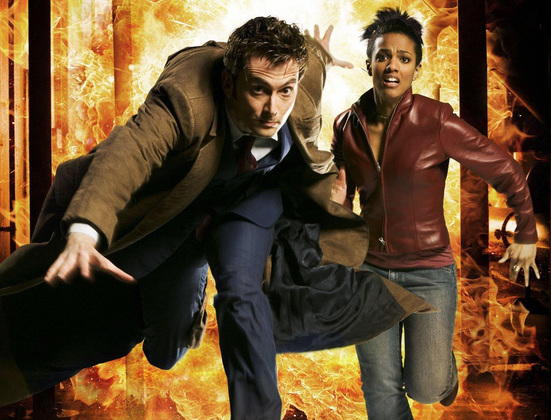
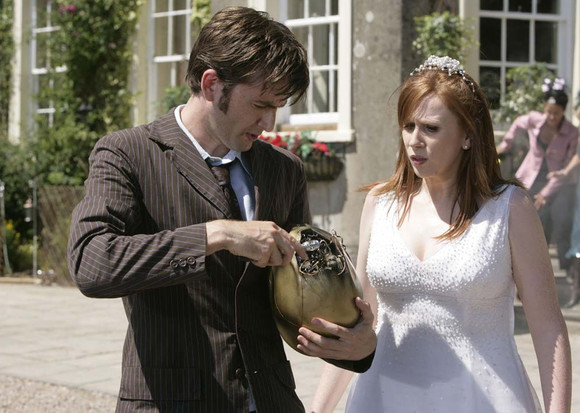
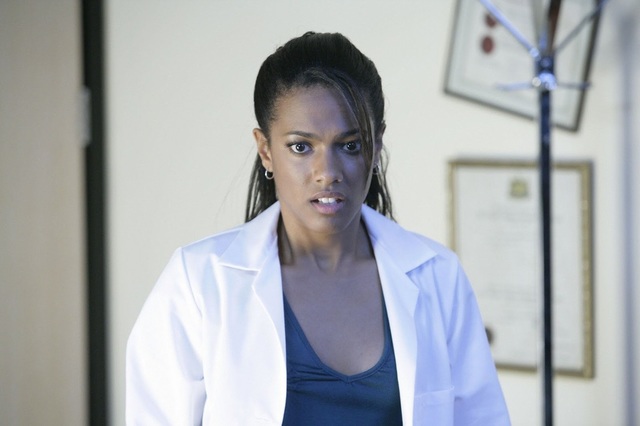
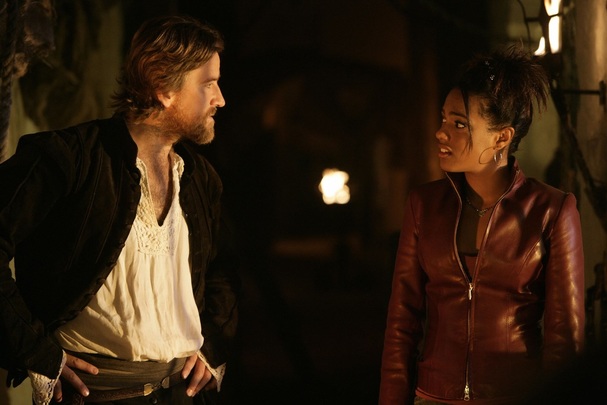
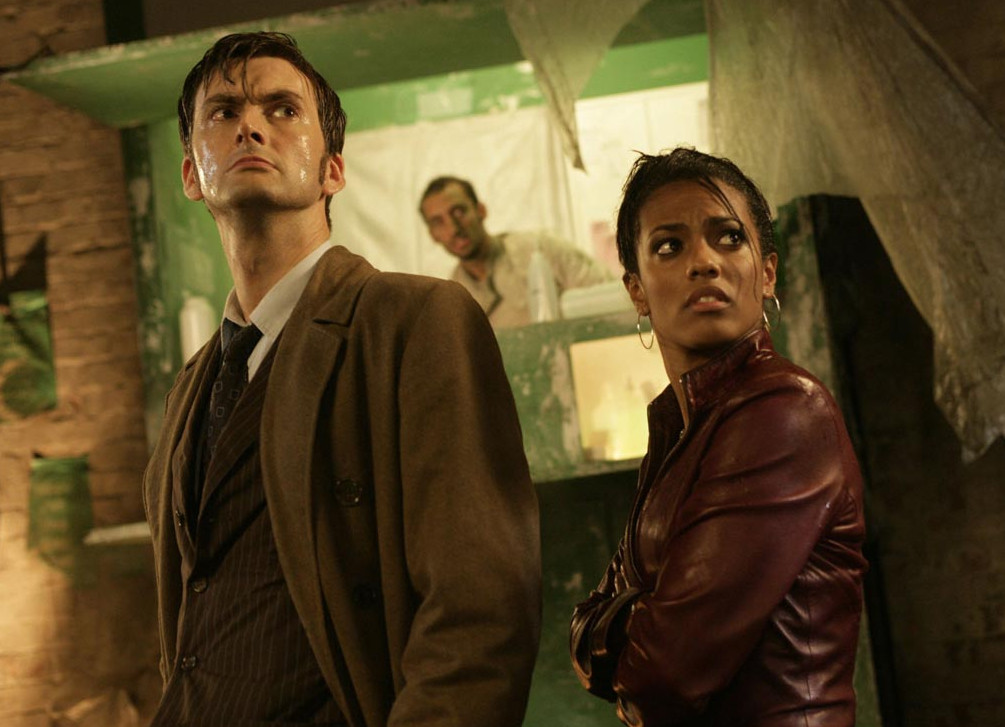
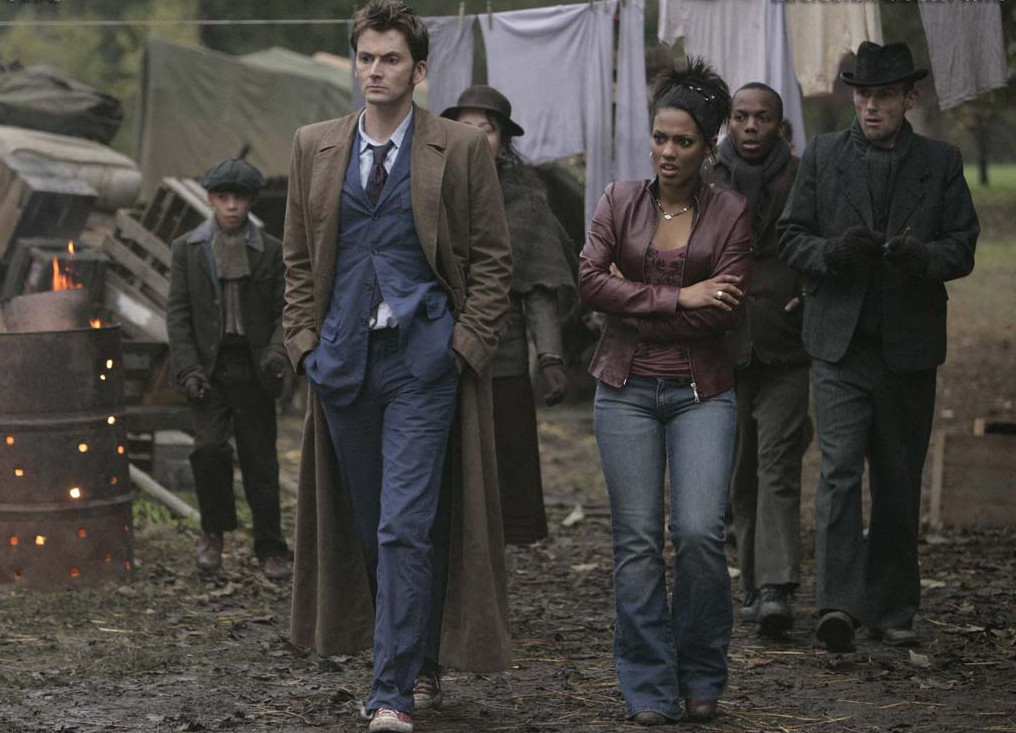
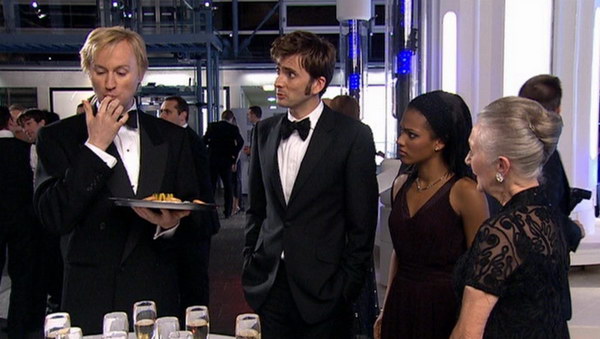
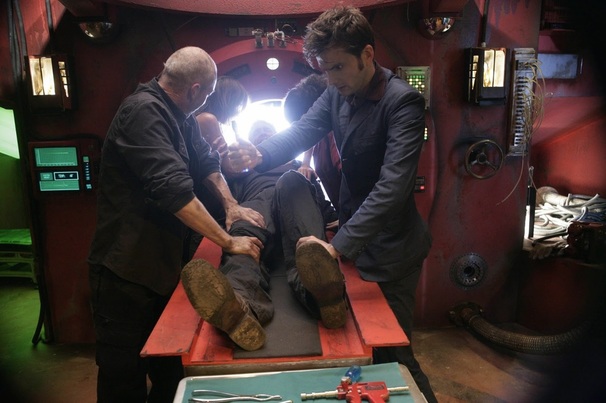
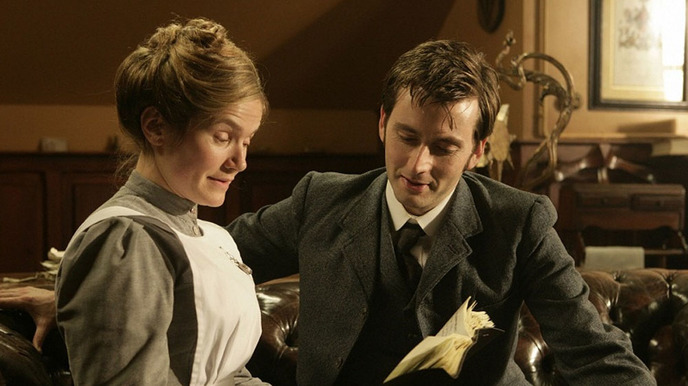
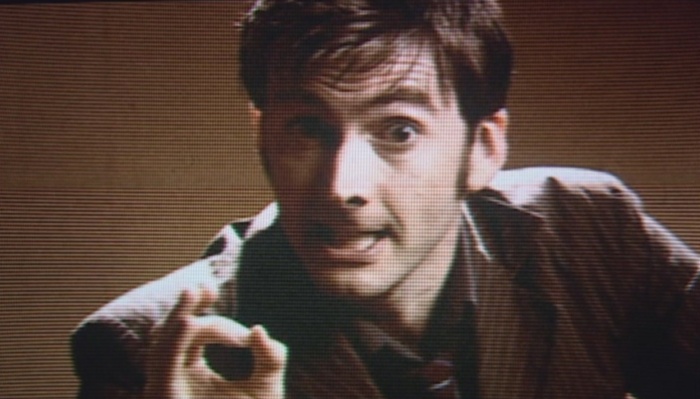
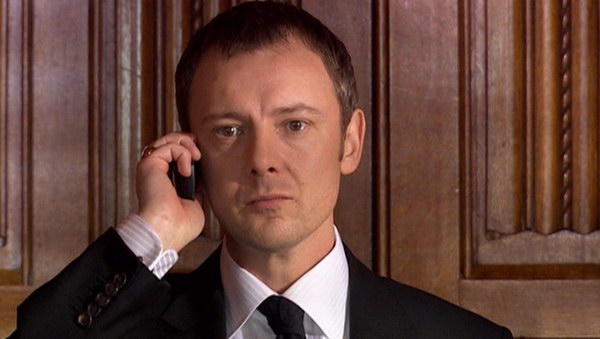
 RSS Feed
RSS Feed
